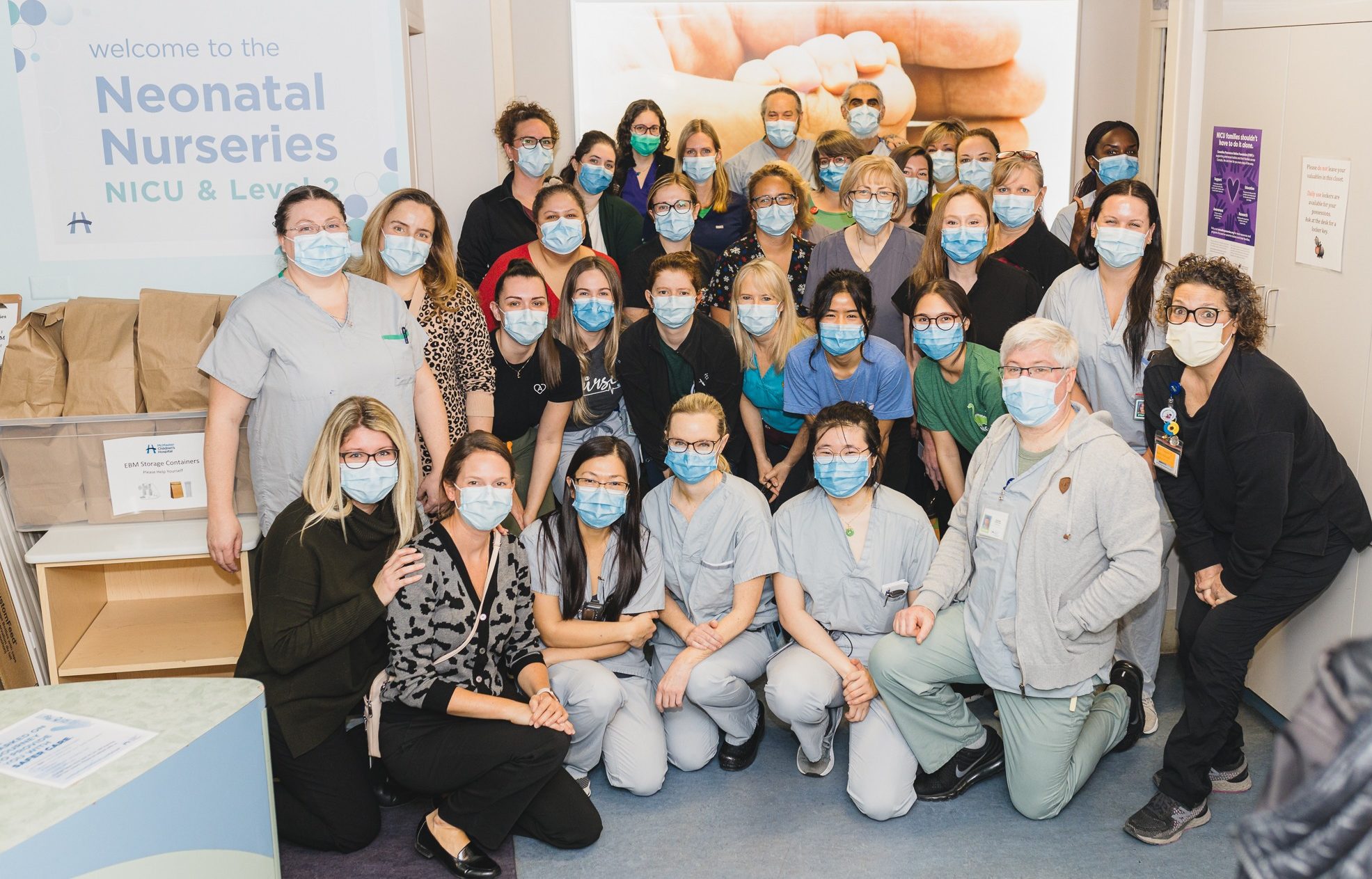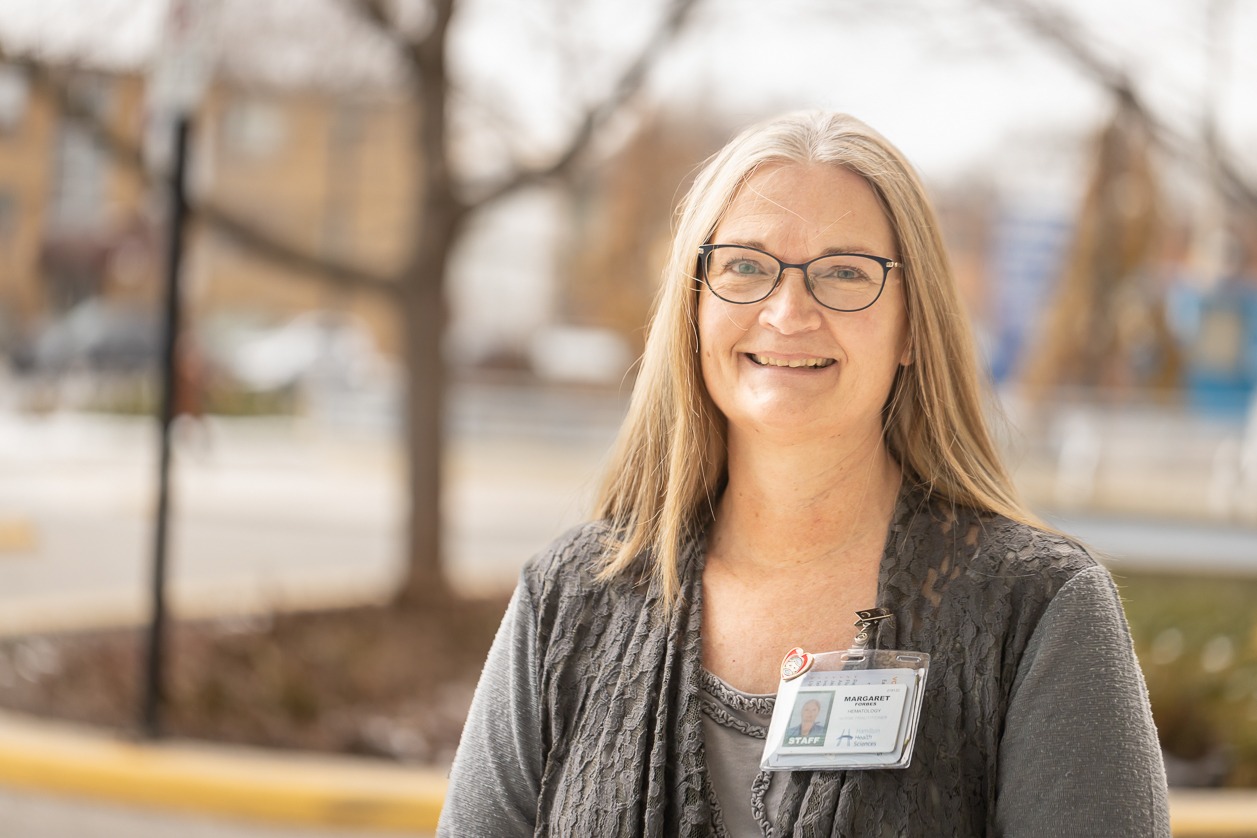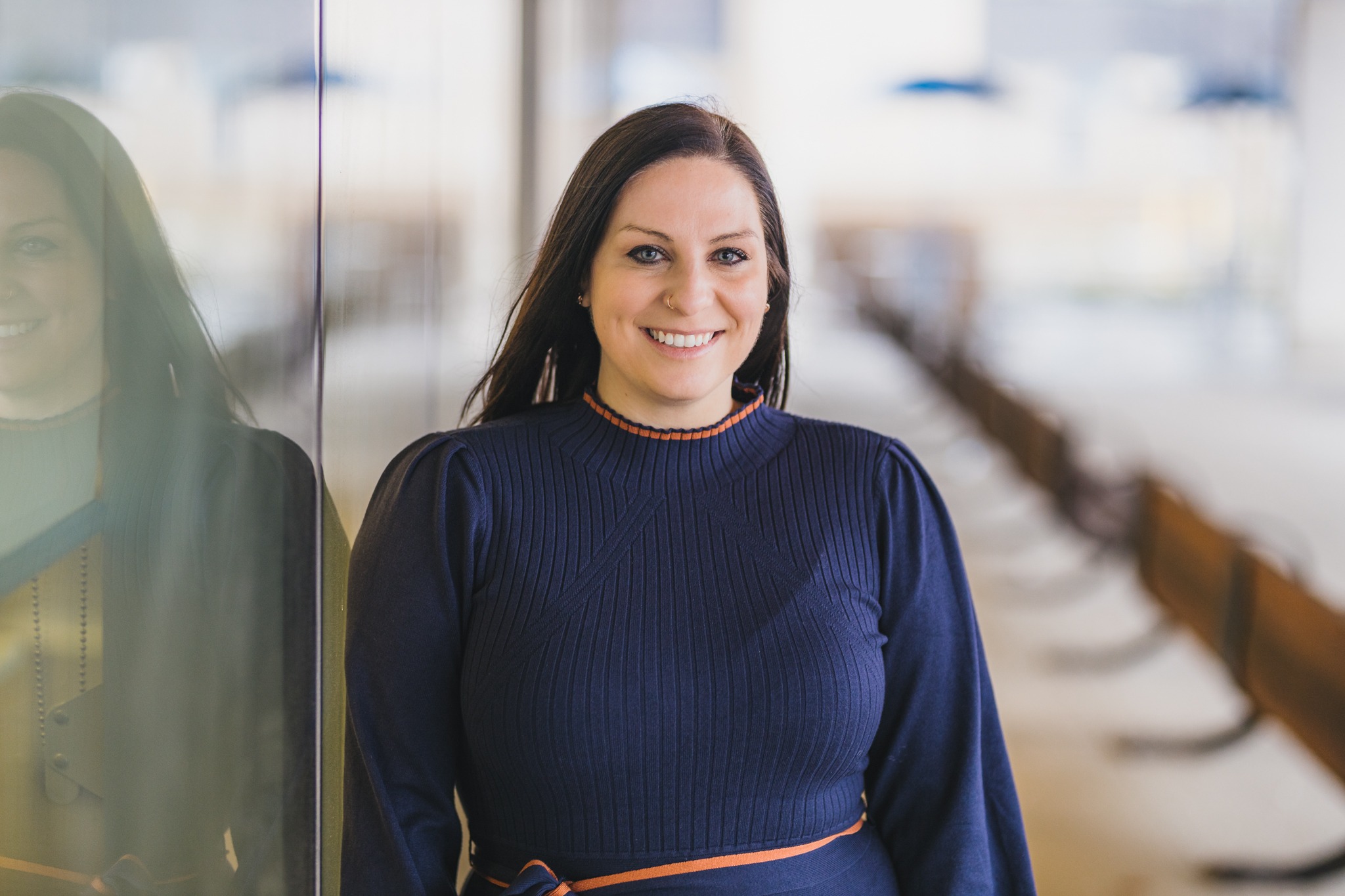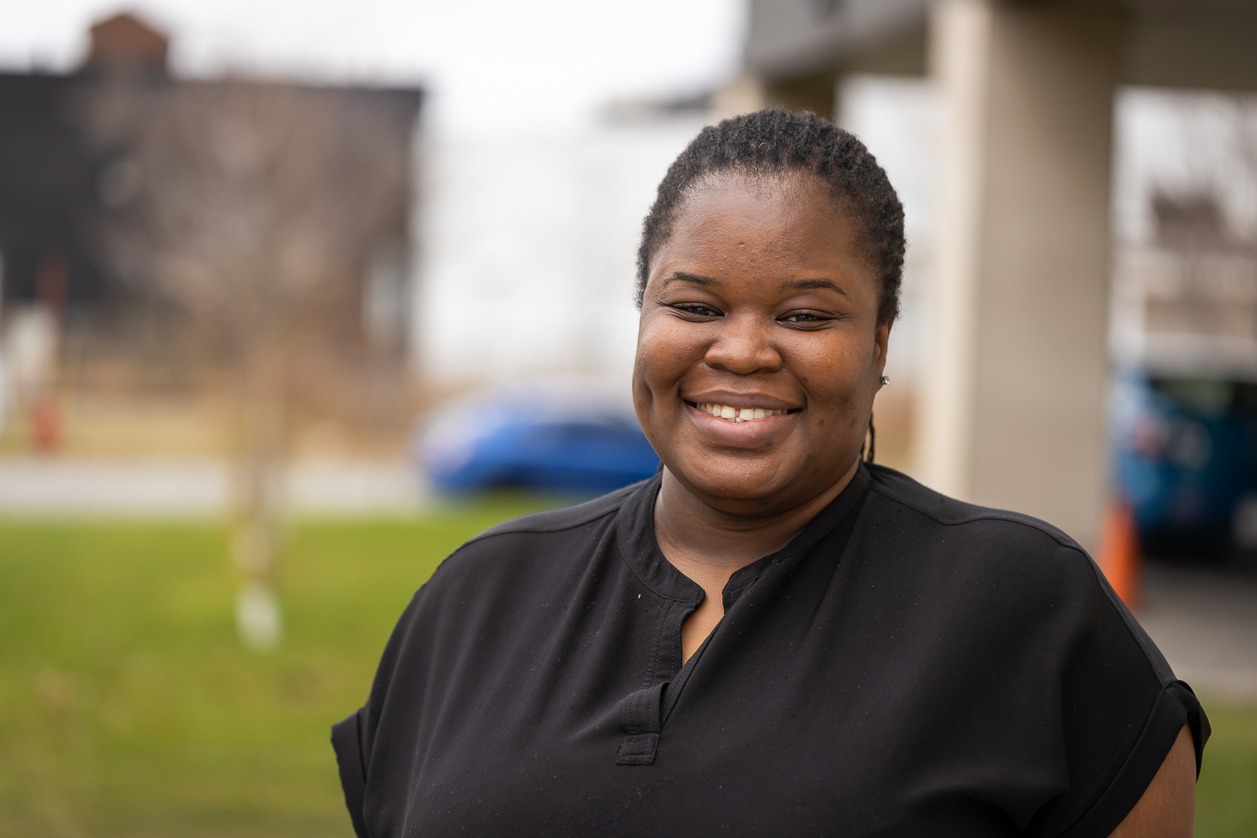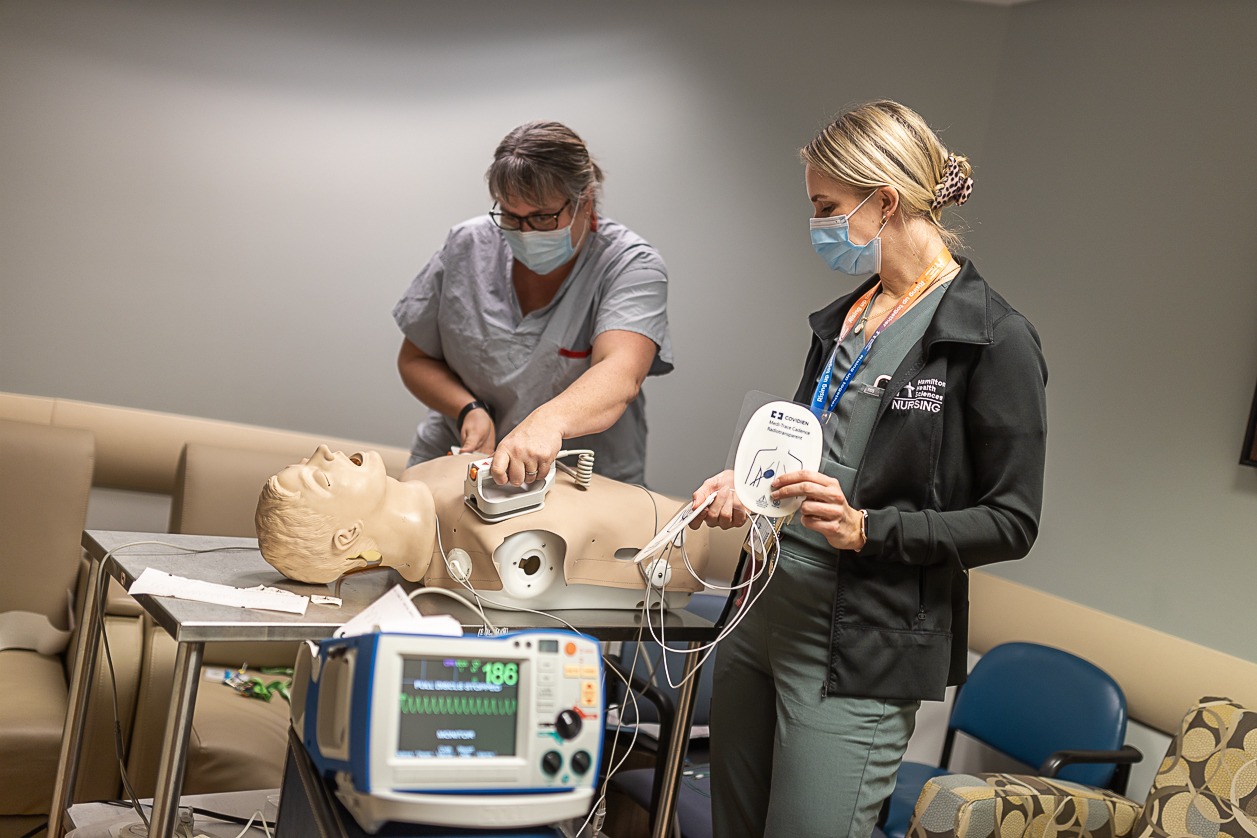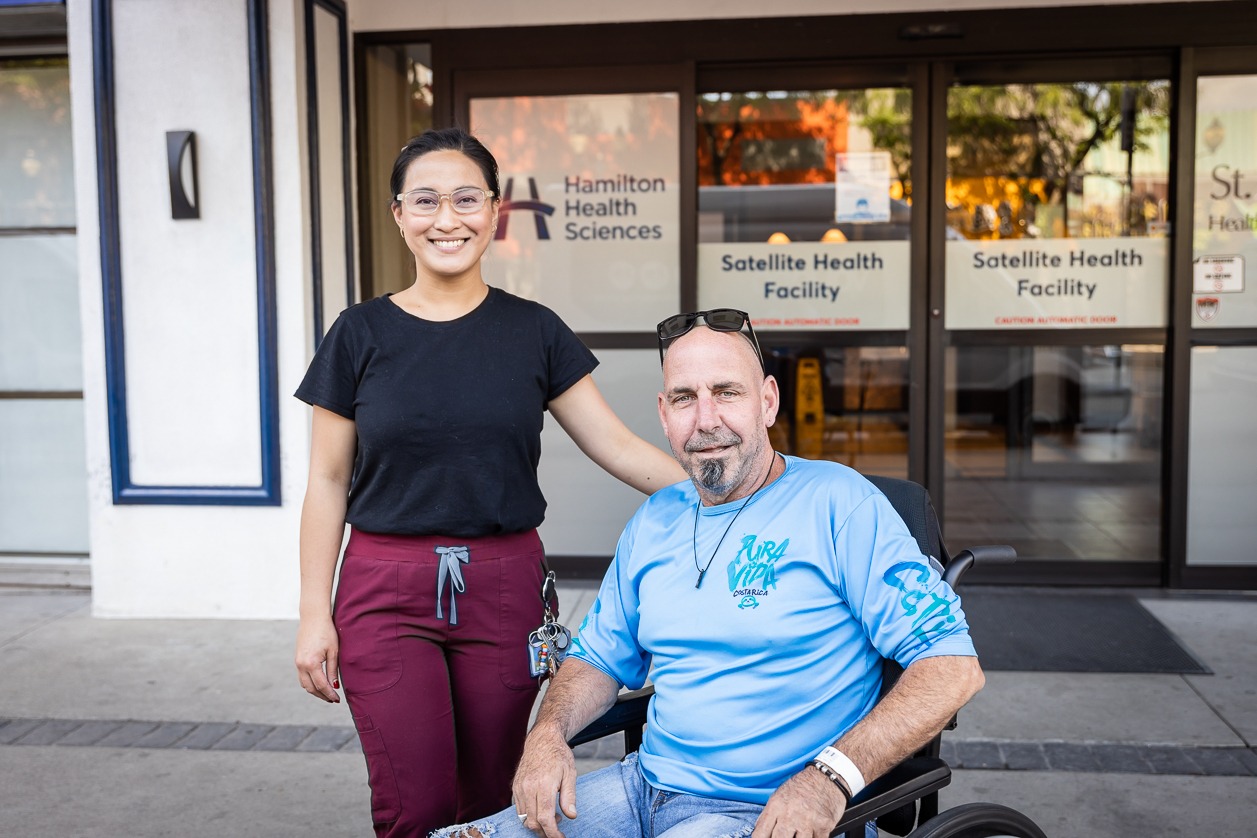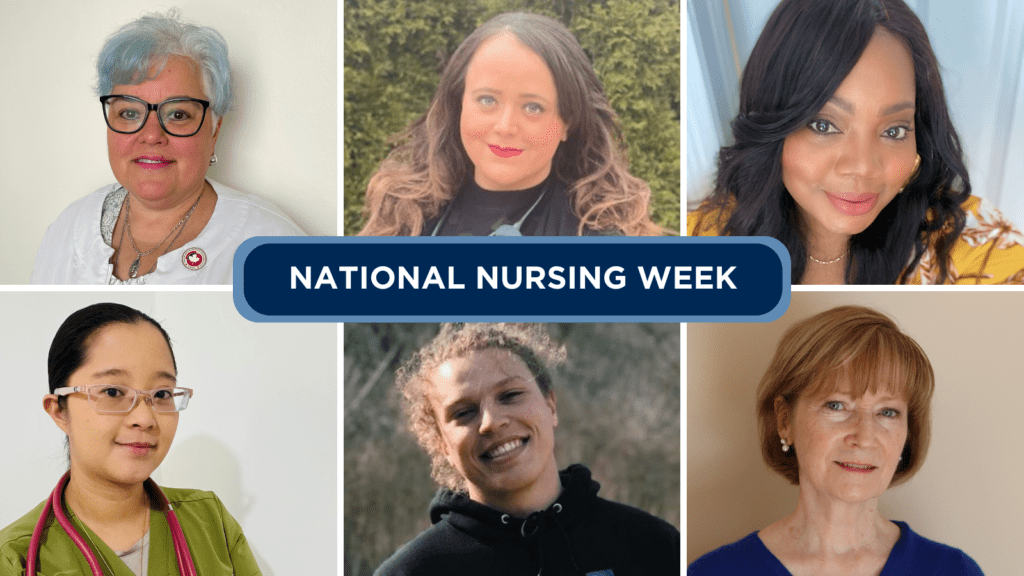
Celebrating National Nursing Week
During National Nursing Week from May 8 to 14, we recognize more than 4,000 nurses at Hamilton Health Sciences (HHS) who play an important role in helping to save and change lives, every day.
Our Nurses. Our Future.
It’s important to showcase the work nurses do in the hospital and how they provide support throughout a patient’s health-care journey. Nurses make informed decisions about patient care and provide comfort to patients when they are most vulnerable. They are courageous and dedicated, giving it their all.
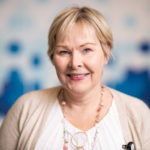
Sharon Pierson, Executive Vice President, Clinical Operating Officer and Chief Nursing Executive.
“The work nurses do is incredibly diverse,” says Sharon Pierson, Executive Vice President, Clinical Operating Officer, and Chief Nursing Executive. “They are educators, nurse practitioners, RNs, RPNs, team leaders, innovators and researchers, teachers and mentors, navigators and coaches, collaborators, and ambassadors. They are all the face of HHS. Extremely valued, always exceptional.”
We extend our deepest gratitude to all HHS nurses for their empathy and kindness. Your efforts never go unnoticed, and your service is appreciated within our hospitals.
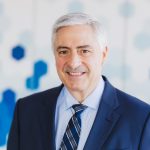
Rob MacIsaac, President and CEO.
“HHS is a people organization, and our nurses are the face of it,” says Rob MacIsaac, President and CEO. “They provide exceptional, compassionate care to almost half a million patients every year from across our city, our region, and our province.”
This year’s theme for National Nursing Week is Our Nurses. Our Future. Some of our nurses share their experiences in the field and pass on pebbles of wisdom to future nurses.
Annabella (Bella) Gago, Registered Practical Nurse, Stroke and Rehabilitation at the Hamilton General Hospital
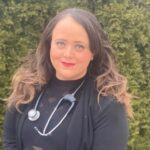 Annabella (known as Bella) Gago knew she wanted to get into nursing when she was in high school and cared for her grandmother who suffered a stroke. “Nursing has been something I’ve been passionate about for a long time, and I always take care of patients as if they were my own family,” says Gago. “I always strive to make a difference to all those that I care for.”
Annabella (known as Bella) Gago knew she wanted to get into nursing when she was in high school and cared for her grandmother who suffered a stroke. “Nursing has been something I’ve been passionate about for a long time, and I always take care of patients as if they were my own family,” says Gago. “I always strive to make a difference to all those that I care for.”
Gago has been a bedside nurse that specializes in stroke rehabilitation for 10 years and describes her job as rewarding. “I think what’s amazing in my current role is to see the incredible gains and progression each patient makes within their rehab stay. When they come back to visit after discharge, and I see how much progress they made, it really makes me feel like I’ve helped make a difference in their lives.”
A message Gago extends to all new nurses coming into the field is ‘never doubt yourself’. “There is no individual in the world that knows everything, and there is power in knowledge. It’s important to open your mind and be receptive to what you can learn from others, and yourself.”
May Grace Macatol, Registered Nurse, Satellite Health Facility
 May Grace Macatol grew up watching her mother, a health-care worker, care for patients and was exposed at a very young age to the nursing profession. This influenced Macatol to get into nursing where she started as an internationally educated registered nurse and is now a charge nurse.
May Grace Macatol grew up watching her mother, a health-care worker, care for patients and was exposed at a very young age to the nursing profession. This influenced Macatol to get into nursing where she started as an internationally educated registered nurse and is now a charge nurse.
She works to ensure continuity of care throughout all patient transitions. “Aside from taking care of patients, I get to teach and mentor my fellow nurses,” says Macatol. “New experiences meant new learning opportunities when I became a charge nurse, and I was able to discover the leadership skills that motivated me to become an exemplary nurse.”
Macatol encourages future nurses to gain as much experience as possible, in the classrooms and hospitals. “Nursing is a profession that requires great intelligence, motivation, and determination,” says Macatol. “When you get into the nursing field, you must accept the role of being a nurse as a whole. As much as you’re caring for the patient physically, you must also care holistically. There’s nothing more fulfilling than the words of appreciation from your patients, and their families, and for being one of the reasons they got better and released from the hospital.”
Esther Coker, Clinical Nurse Specialist, Medically Complex Care and Behavioural Health at St. Peter’s Hospital
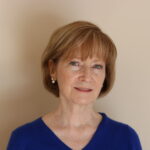 To prepare herself for working with older adults years ago, Esther Coker studied gerontology and later became a certified gerontological nurse. At St. Peter’s Hospital she works with nurses and other team members to come up with better ways to provide safe, person-centred care. Through her work on clinical practice committees, she helps to ensure that knowledge of best practices is shared in a way that guides care at the bedside.
To prepare herself for working with older adults years ago, Esther Coker studied gerontology and later became a certified gerontological nurse. At St. Peter’s Hospital she works with nurses and other team members to come up with better ways to provide safe, person-centred care. Through her work on clinical practice committees, she helps to ensure that knowledge of best practices is shared in a way that guides care at the bedside.
“I enjoy the challenges and variety in my role, and love learning from others,” says Coker. “Especially from nurses who provide direct care, and from members of the interdisciplinary team who provide me with a different lens to look through.”
Coker was a member of the planning committee for this year’s Canadian Gerontological Nursing Association national conference and is a frequent attendee. “Over the years at the conference, I have shared my research related to falls, personhood, oral health, delirium, and pain assessment and management,” she says.
A piece of advice Coker passes on to future students is to find a mentor, and she encourages those stepping into the field to get involved with local nursing specialty organizations.
Nadine Stewart, Registered Nurse, Clinical Internationally Educated Nurses (IEN) Coordinator
 Nadine Stewart always knew she wanted to work in the medical field. “I recognized at an early age that I had a passion for helping others, and that passion has never wavered,” says Stewart, who was inspired by her mother, a health-care worker, to work in the field, which she has been doing for the last 21 years.
Nadine Stewart always knew she wanted to work in the medical field. “I recognized at an early age that I had a passion for helping others, and that passion has never wavered,” says Stewart, who was inspired by her mother, a health-care worker, to work in the field, which she has been doing for the last 21 years.
Stewart’s role transitioned from a registered nurse at the Hamilton General Hospital Emergency Department to an IEN clinical coordinator. She manages the Supervised Practice Experience Partnership (SPEP) program and assists IENs in getting their evidence of practice to be registered in Ontario. “Many IENs have faced several hurdles and financial burdens in pursuit of becoming a nurse in Ontario,” says Stewart. “It’s great to be able to assist IENs and to be able to give back to the nursing profession in a unique way.”
“My advice to future nurses would be to always remember your ‘why’,” says Stewart. “There are many challenges in nursing today like never before, and remembering your ‘why’ will help you continue to provide great patient care in spite of the many difficulties you may face along your journey.”
Cheryl Marzoli, Registered Nurse, Wound, Ostomy, and Continence Nurse Clinician at Juravinski Hospital
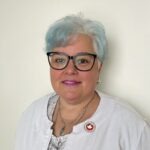 Cheryl Marzoli started her career as a registered nurse in 1986 in the orthopedics unit at our Juravinski Hospital. She became a wound care clinician in 2007 and in 2010, a nurse specialized in wound, ostomy, and continence (NSWOC).
Cheryl Marzoli started her career as a registered nurse in 1986 in the orthopedics unit at our Juravinski Hospital. She became a wound care clinician in 2007 and in 2010, a nurse specialized in wound, ostomy, and continence (NSWOC).
Marzoli focuses on advanced training in developing and implementing meticulous, evidence-based care plans for patients with wound, ostomy, and continence challenges. “I enjoy using my advanced skills, experience, and education to help patients who have very complex wounds and ostomies, using a holistic approach and applying best practices to heal them,” says Marzoli. “It’s very rewarding to support a patient and provide them care.”
“Nursing is a rewarding career, with many avenues that can be explored,” says Marzoli. “It has been very enjoyable for me for the last 38 years, and there have been many times when a patient has touched my heart. Even during hard times or challenges, it’s been an honour to provide care and support for all the patients I have looked after over my career.”
William Richardson, Registered Nurse, Emergency Department (ED) at McMaster Children’s Hospital
 William Richardson was diagnosed with type 1 diabetes when he was 13-years-old, and felt misunderstood as a patient. This inspired him to enter the nursing field to care for those when they are at their most vulnerable.
William Richardson was diagnosed with type 1 diabetes when he was 13-years-old, and felt misunderstood as a patient. This inspired him to enter the nursing field to care for those when they are at their most vulnerable.
Richardson is the first point of contact when patients come into the ED. For children who present emergencies requiring immediate assistance and attention, Richardson plays a crucial role in ensuring both patients and families are communicated to thoroughly. “You never know what is going to happen for the 12 hours of your shift, but working with the great team in the ED makes every day a great day,” says Richardson.
A piece of advice Richardson offers to nurses coming into the field is ‘don’t settle or limit yourself’. “As a nurse, there are an infinite number of opportunities and various job types. Keep looking for something until you find what you enjoy.”
Richardson adds, “Don’t limit yourself either based on what you have been told or have heard. If you want a certain type of job you just have to be committed and put in the work, but you’ll never know unless you try.”


